(This is the first installment of a two-part series in which Black cannabis executives discuss racism and its impact on themselves and the industry.
(Click on the orange arrows to advance the slideshow.)
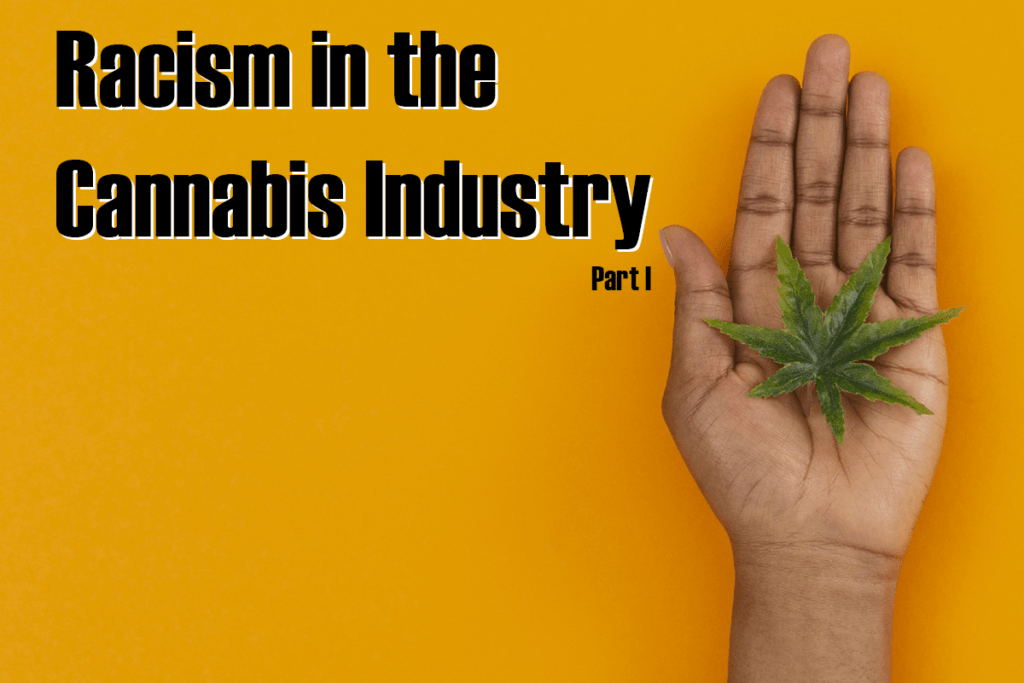
Systemic racism in the United States was brought to the national forefront again in May, when George Floyd was killed in police custody in Minneapolis, and protests that ensued nationwide gave new life to the Black Lives Matter movement.
The cannabis industry is no exception when it comes to institutional racism, and businesses as well as regulators have been grappling for years with how to correct the historic harms wrought by the war on drugs as well as ongoing racial issues in the legal cannabis market.
To contribute to that conversation, Marijuana Business Daily spoke with several Black marijuana business owners and executives from across the United States to get their thoughts on racism and how it might have affected their companies and careers.
The responses have been edited for length and clarity.
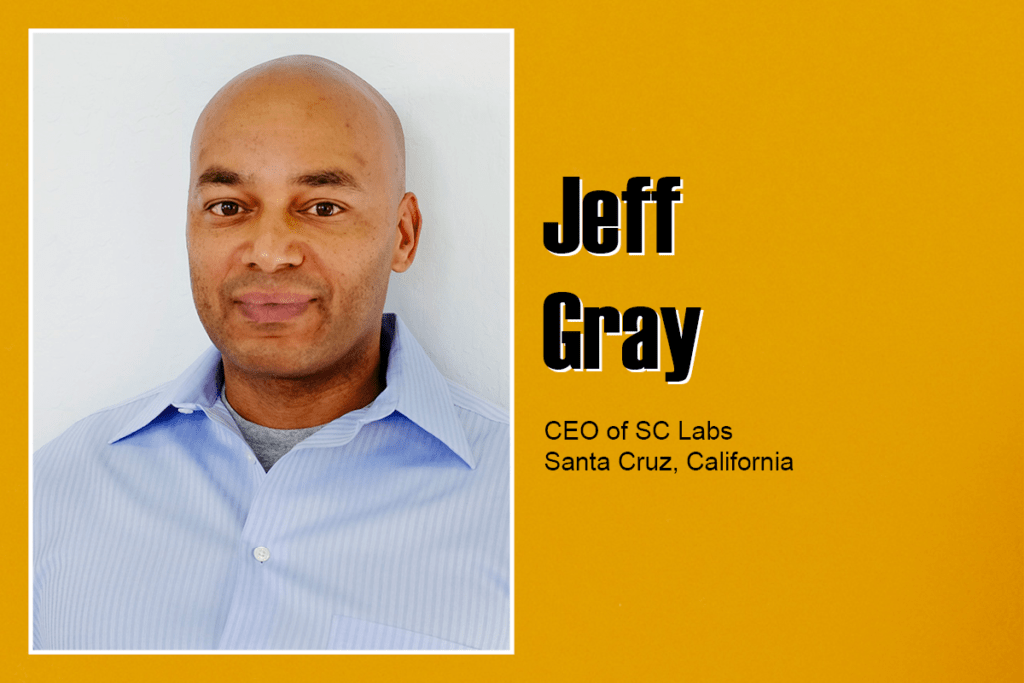
What have you had to do from a business standpoint to overcome barriers posed by racism in both the industry and your supply chain?
Race defines our experience as Black Americans. It is a condition, not an event. It is not a circumstance. It is the circumstance.
Racism in its everyday form is rarely overt and egregious. It’s subtle and fluid. However, the effect is palpable and pervasive.
The effect is that you don’t see many Black and brown employees in cannabis, at any point in the supply chain.
And the higher you move up the org chart, the fewer Black and brown faces you see. And those are constant reality checks about the state of things.
I’m proud to be in the 4% of African American executives and an owner of a cannabis business, but “overcome” is a loaded word.
I’ve spent a lifetime persisting, struggling with, succeeding in the face of, being conditioned by … issues related to racism.
The best thing I – we – can do at this point is to continue to “overcome,” continue to hire and mentor minority employees and help build a tolerant, inclusive industry from the ground up.
How pervasive of a problem do you think racism is in the legal marijuana industry?
The problem is extremely pervasive, and the effects are obvious.
There are no opportunities to get into the cannabis industry, just barriers.
Many of the “entrepreneurs” in the traditional market are minorities, but they can’t get into the legitimate market because of three things:
- An unfriendly and difficult licensing process that has significant roadblocks for those with fewer resources.
- An historically negative relationship with cannabis, in concept and/or in practice, as an effect of the war on drugs.
- A lack of financial resources; you can’t be a successful company in cannabis without it.
I’ve certainly sat across the table from countless investors, none of them with Black or brown faces. And when they pass on the investment, is it because I’m Black? I don’t know the answer to that.
What I do know is that in every circumstance, I am the only person in the room who looks like me. Race and economics are inextricably linked.
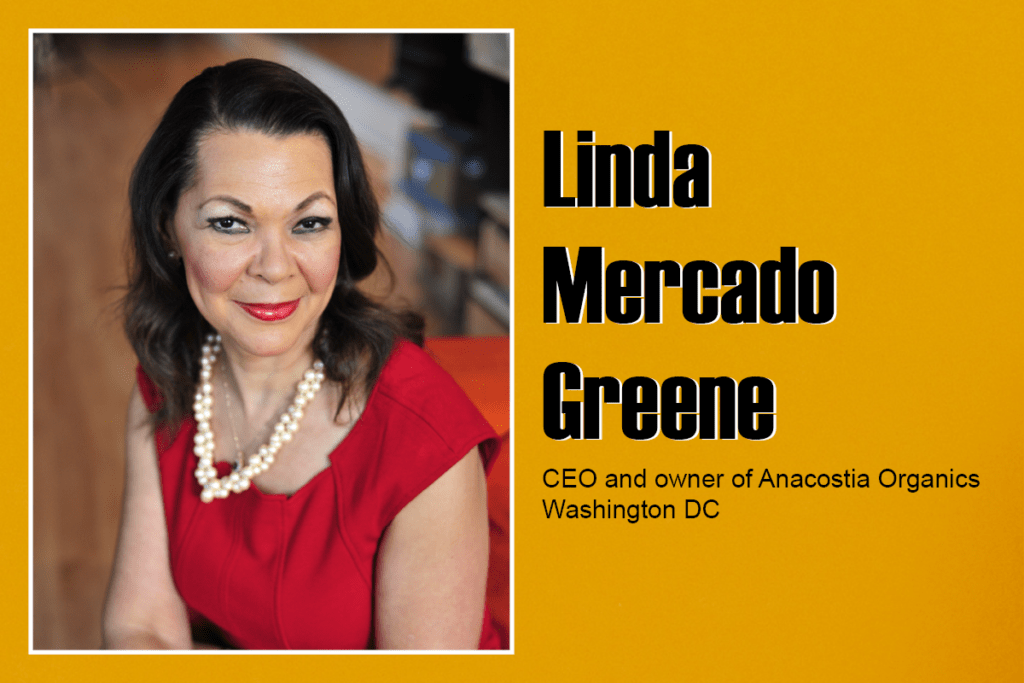
What have you had to do from a business standpoint to overcome barriers posed by racism in both the industry and your supply chain?
Even though I had been involved in the industry since 2014, doing due diligence to cultivate relationships and learning from those experienced in the industry, it was not easy at all to convince these guys I could be successful in a cannabis business.
While several mentored me, they were reluctant to back me financially after I created the opportunity for more licenses to be awarded in DC because of “unintentional discrimination.”
The largest hurdle for me was to find sound investors to back my quest to obtain a license in the District of Columbia with me retaining 100% ownership.
While there was a lot of interest, many of the interested investors were demanding an unusual amount of secured notes, such as my home, personal properties, overwhelming control of management and high percentages of equity ownership.
This was definitely because of my skin color and being a woman. I know of white male licensees who received all the funds they needed for their businesses through unsecured loans.
Lack of capitalization has been a hurdle for minorities throughout the country.
Legally licensed medical cannabis dispensaries in DC must purchase all our supply from one of the legally licensed cultivators in our city.
In our local supply chain, I have not experienced any racism. We are a small industry in DC with only 15 medical licenses: eight cultivator licenses and seven dispensary licenses.
We are, perhaps, one of the most diverse groups of any other state on the retail side with four of the seven licensees being minorities. Of the eight cultivators, only one is a minority.
We are a very close and extremely collegial group working together on many factors to improve and simplify the access of medical marijuana for our patients.
How pervasive of a problem do you think racism is in the legal marijuana industry?
Absolutely I know people of color experiencing the very same issues.
I am very involved in the industry, serving on the executive committee of the Cannabis Trade Federation and chairing the CTF Diversity, Equity and Inclusion Task Force; chairing the DC Medical Cannabis Trade Association; and a former board member of the Minority Cannabis Business Association.
Many of my colleagues who are minorities have experienced extreme racism through the award process being tainted in some states, through political wrangling in some of the states as well as not being treated as respectable entrepreneurs.
Regrettably, this is the norm in the industry for people of color, which automatically disqualifies many from getting in the industry.
It is widespread. But there is hope.
The larger industry multistate operators (MSOs) are taking notice and are actively creating various tools, resources, and financial support to diversify the industry.
You see, people of color do not have generational wealth.
People of color don’t have the connections/access of family picking up the phone and telling their buddies to invest in their ventures or their sons or daughters’ ventures.
I am more optimistic than I have been because cities like Oakland, California, and states like Illinois and Massachusetts have initiated and enacted regulations and opportunities to level the playing field in cannabis.
Besides inequity and racism with licenses, it’s the same if a minority has an ancillary business in the cannabis industry.
The contracts go to “who they know,” disallowing operating businesses such as accounting, marketing, security, architects, legal and compliance to even get a foot in the door.
Minorities in the C-suite are nonexistent.
In the entire country, you can probably count minorities in the C-Suite of cannabis companies on one hand.
Minorities in management of cannabis companies is absent.
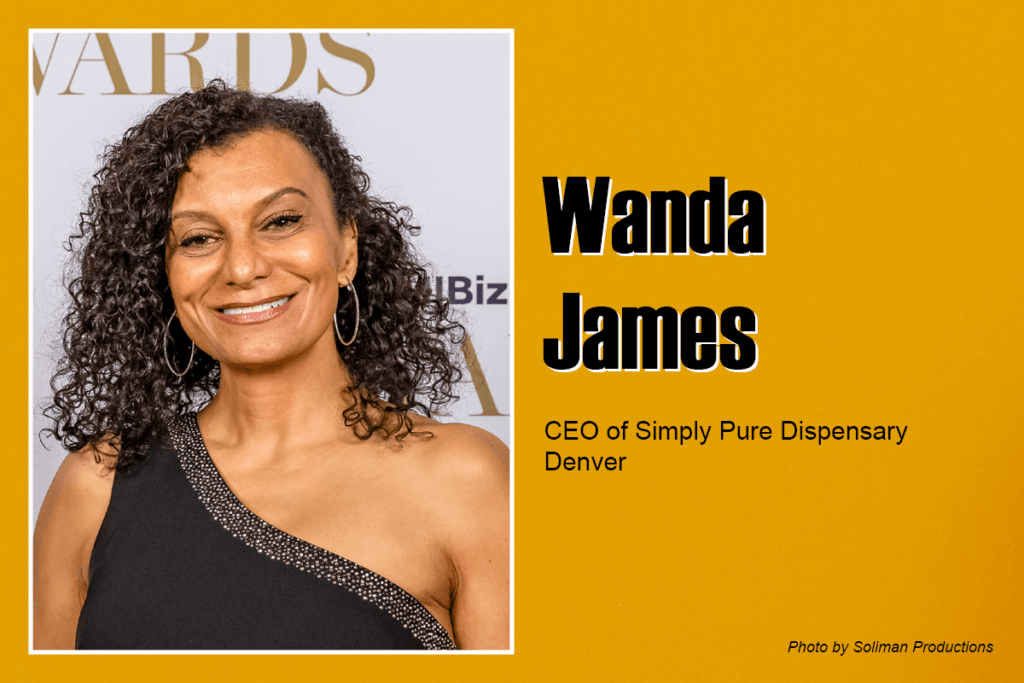
What have you had to do from a business standpoint to overcome barriers posed by racism in both the industry and your supply chain?
It’s weird, because the first bunch of years I’d say that the racism that was felt was that Black and brown people had been excluded from this industry.
There just weren’t any of us in here, due to a lot of the regulations that Colorado put in place early on.
The last few years, it’s been a very odd mix of blowback from a lot of the bigger players that don’t want to give up any ownership in the industry.
In other words, the large hedge funds. Mostly white, male-backed companies want all the licenses, and they have absolutely no desire to share any of the business opportunities in the industry.
So it’s turned into an issue that’s had to have been forced onto people, which is really divisive.
How pervasive of a problem do you think racism is in the legal marijuana industry?
One hundred percent. It’s a huge issue.
We’re seeing it with literally flat-out fraud happening in places like California when it comes to social equity.
They passed a social equity piece in Los Angeles, where only so many licenses were going to be given out, and we saw flat-out fraud where white companies would hire a Black face or give a small amount of money to somebody Black just so they could apply and get a license.
We’ve seen institutional racism happen in places like Boston, where people were getting the licenses, but for some reason white investors chose not to invest in businesses of color, which is also infuriating.
And now we’re waiting to see what happens in Illinois, if they’re equitable in giving out licenses.
Here in Colorado, we’ve started Black, Brown and Red Badge to have our voices heard during the social equity conversation, because the city of Denver has been precluding any licenses from being given to people of color.
And the larger dispensaries and companies have actually been fighting here in Denver to not give licenses to communities of color.
So it’s definitely turned into a battle.
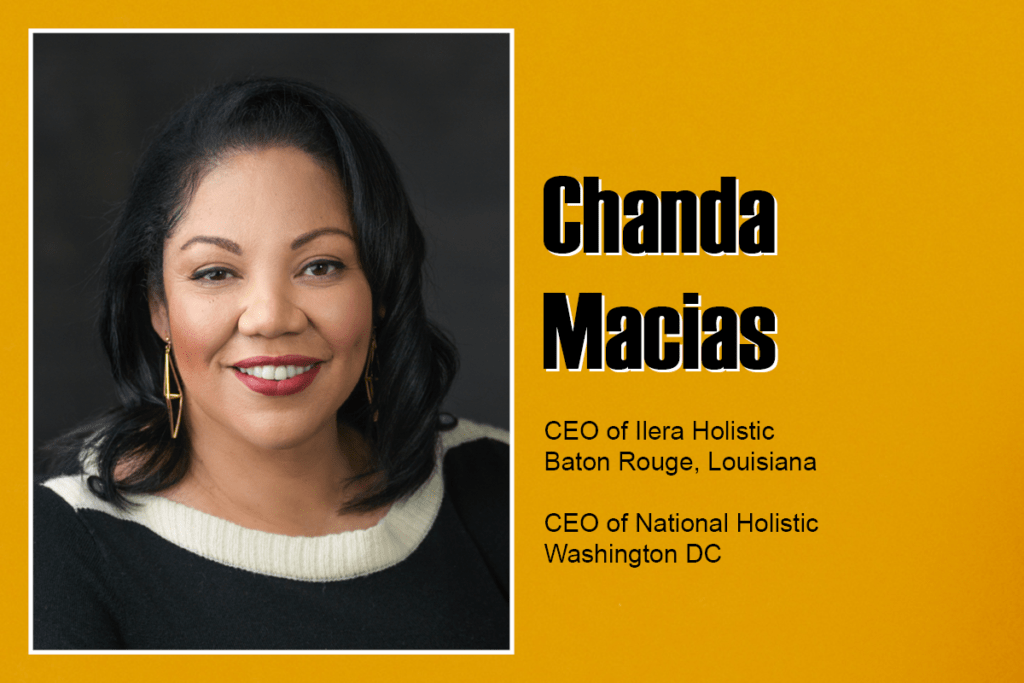
What have you had to do from a business standpoint to overcome barriers posed by racism in both the industry and your supply chain?
I am surprised people or businesses believe we have overcome racism within cannabis.
My team and I have endured various levels of racism prior to and upon entering this industry.
One of the first questions I heard after being awarded our license, “How did you get here?”
Once I processed the question, I realized the person was asking how a person like myself – a Black woman – got into the industry?
He wondered, “Where did I get my capital, if my business was legitimate, and who let me in?”
Our next challenge was distributors selling to us at higher than market value.
We knew what our competitors were paying, yet our prices were increased, and this was 2015.
While progress has been made since then, we still have much work to do.
How pervasive of a problem do you think racism is in the legal marijuana industry?
We are in a multibillion-dollar legal industry with currently about 4.3% Black ownership and over 80% white ownership.
I would say the numbers tell you the experiences people of color and, to be specific, Black people are facing.
It is not that Black people are not applying for licenses, because they are.
But we have seen this time and time again in states where if diversity is not written into law, then Black and brown people are bypassed.
Black and brown people have been saying this since this legal market opened.
There has been tons of news coverage from several years ago to the present and the issues have not changed.
What we are seeing today is applied pressure to an industry that chose to ignore the very community that helped build it.

What have you had to do from a business standpoint to overcome barriers posed by racism in both the industry and your supply chain?
Racism is a part of our society in America.
It’s weaved into our social constructs as a clever way to separate, classify and, in some ways, subjugate whole groups of people based on their racial or ethnic identity.
As a person of color, and more specifically as a Black man, I grew up well aware of these differences.
However, I learned that these differences were just physical differences and had nothing to do with who I was and what I was capable of.
With that said, I’ve not found that being a person of color has in any way deterred my ability to build meaningful relationships and advance in business within the cannabis industry.
How pervasive of a problem do you think racism is in the legal marijuana industry?
With respect to overcoming barriers posed by racism, I personally have not experienced any overt racism or discrimination in my six-year career within the cannabis industry.
My frame of reference may be different than others, as I have experienced direct racism in the finance industry, particularly in New York and Massachusetts.
Conversely, I’ve found that in my experience, the cannabis industry as a whole tends to support the tenants of diversity, equity and inclusion.
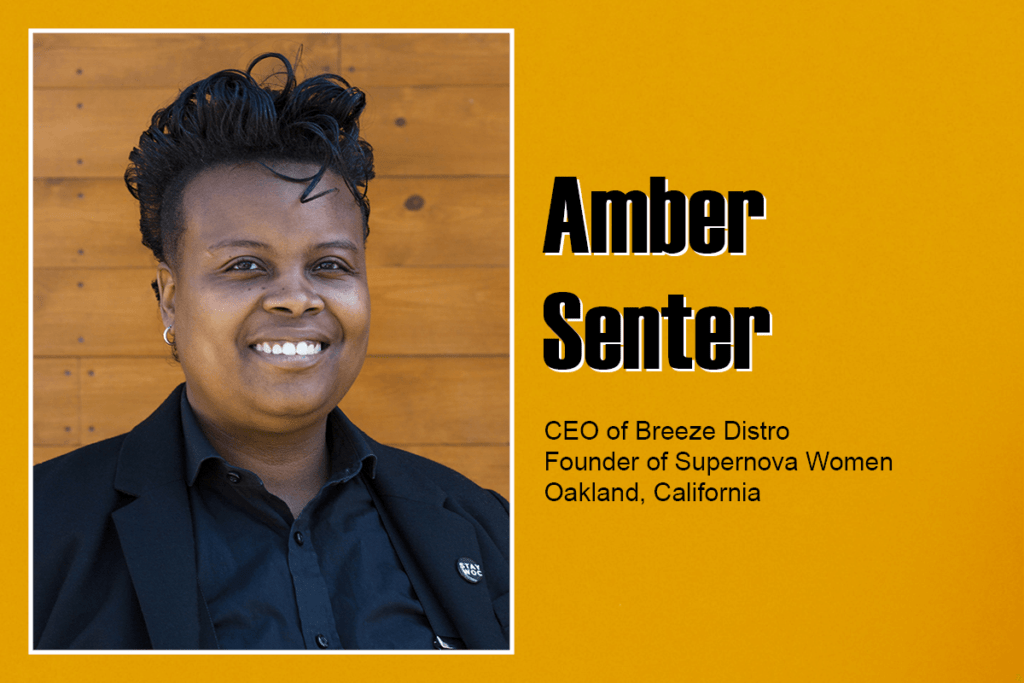
What have you had to do from a business standpoint to overcome barriers posed by racism in both the industry and your supply chain?
I will say there’s a ton of racism in the dispensaries at the level of purchasing and buying.
I feel like a lot of the owners of dispensaries don’t realize that their buyers are racist.
So a lot of times what I do to get around racist buyers is, I’m friends with the owners.
And sometimes it even takes much longer than it should, with the owner having to put their foot down and make the buyer carry the product.
I’ve had to do this a number of times. It’s actually really shocking.
And according to BDS Analytics, Congo Club (a flower brand Senter founded) is the third-best-selling sativa in the state, so you wouldn’t think I’d have to put this much effort into getting product onto shelves.
But I do. And it’s usually because I’m dealing with some white dude with a chip on his shoulder as a buyer.
I still have a lot of problems getting product on (store) shelves. It’s literally a matter of racist buyers not wanting to carry product.
How pervasive of a problem do you think racism is in the legal marijuana industry?
It’s a big problem. It’s so much of a problem that Supernova is actually hosting a webinar because we know this issue exists. And the topic is strategies to get shelf space.
I was just talking to (a colleague) about this yesterday. This is something he faces, too.
It’s just a known thing among Black and brown operators in cannabis, if you have product you’re trying to sell.
